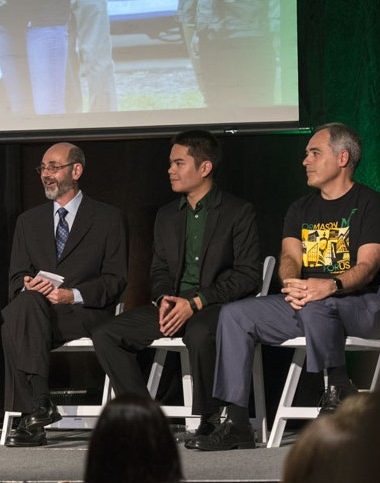George Mason University held its “For Mason. For Us.” launch party Wednesday to introduce faculty, staff and students to the university’s $500 million comprehensive campaign.
The goal of the campaign, called “Faster Farther: The Campaign for George Mason University,” is to reach the half-billion dollar mark by 2018. To do that, said campaign officials, the entire Mason community needs to be engaged in the effort.
“A campaign isn’t just about raising money,” said emcee Wendi Manuel-Scott, director of Mason’s African and African American Studies Program, and an associate professor in the Department History and Art History. “It’s about banding together, working collectively and thinking about what kind of university we want to be.”
Three examples of that creative thinking were on display at the campaign’s launch at Dewberry Hall.
Janet Walker, life/work connections manager in Mason’s Human Resources and Payroll Department, told the audience of several hundred how a $25,000 prize from a 2010 vendor’s contest was turned into a faculty/staff book scholarship. Since then, nine Mason staff members have benefitted from the financial assistance to buy books in the course of their continuing professional development.
“At just $250, it’s not a large scholarship,” Walker said. “But it’s enough to make a difference.”
Mason chemistry professor John Schreifels told how he started an endowment with a $3,000 teaching award and added some $40,000 to it with regular paycheck contributions and by taking pledges from friends for each mile in his quest to run the equivalent of the circumference of the Earth.
He could have kept the original $3,000 award, Schreifels pointed out, but instead invested it in future students.
“I believe our next generation of leaders sits in our classrooms,” he said. “So I started adding money from my own paycheck to reach the $25,000 required to endow a scholarship.”
Mason alumnus Francis Aguisanda is the beneficiary of philanthropic generosity, he said, and science is the better for it.
As a sophomore at Mason, Aguisanda was recognized by a professor as a promising researcher. He was guided out of the classroom and into a research lab where he flourished academically but was strained financially, until he received scholarship awards from Mason’s Office of Student Scholarship, Creative Activities, and Research—also known as OSCAR.
“In practical terms, each award was enough to pay for groceries for the entire semester,” Aguisanda said. “I also used some of the OSCAR stipend to help pay for a new laptop, and travel stipends to present my findings at both local and national conferences. These were amazing opportunities to practice my ability to communicate my science, and they remain some of my favorite memories of my time at Mason.”
These days Aguisanda works at the National Institutes of Health, developing therapeutics for rare genetic disorders using stem cells as a cellular model.
At the end of the launch, Mason president Ángel Cabrera reminded the audience that philanthropic funding is crucial to the university if the school is to continue and expand on its successes in research and education, and remain a vital economic engine for the region.
“Giving isn’t always about money. It’s about giving of yourself—your time, your talent and your creativity,” Cabrera said. “By giving those things, you’re giving the greatest gift of all: opportunity.”
September 17, 2015

